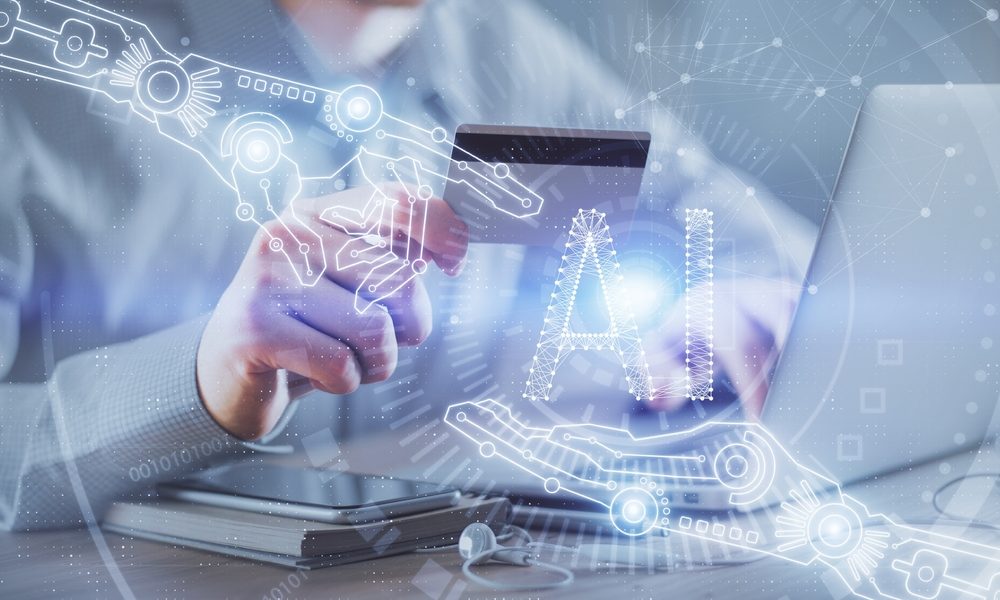The use of artificial intelligence in the gaming industry continues to explode, and Gaming Laboratories International is playing a key role in its growth and regulation.
Joseph Carlon, GLI’s senior director of digital, said when it comes to AI’s place in the industry, the technology is further along than the application. There’s ChatGPT, and more products have come out from Google Alphabet. Microsoft is adding to the keyboard to launch their co-pilot product.
“While the tech is there, how do we apply that tech to the various sectors?” Carlon asked. “That is still very much in its infancy and gaming is no different. One of those areas AI can start to have an impact is responsible gaming.
Looking at where we’re at today versus three, five to 10 years ago, when gaming was very much a closed loop where you had a slot machine talking to a proprietary central monitoring system, and with cash funding the transactions. Responsible gaming on the floor was about training personnel and using some basic analytics from the players’ reward system.”
As there’s been an evolution and the industry has moved more online in the U.S., Europe and Canada, there’s been a lot more innovation added to those products, which brings in more partners, Carlon said.
“It’s more tools and processes,” he explained. “When you look at game hosting to the technology that’s used within a platform, such as the sports betting layered on top of payments, geolocation, identify verification and working with app stores, what that affects is an additional set of regulations, rules and requirements that now are a part of the consideration for gaming regulators.”
There are advantages to that when discussing responsible gaming and complementary areas and looking at other industries and what requirements are out there; take those and augment and customize those for gaming, Carlon said.
“That’s the foundation, setting up the first uses and how we expect AI to enter the gaming industry in a meaningful way. It’s not to say it hasn’t already entered the industry in different areas already, but it’s not as impactful as it’s going to be,” he noted.
AI is going to augment the ability of tools and people using them in the roles that exist today, said Carlon.
Responsible gaming is one of those areas that, when looked at from a regulation standpoint, is trying to protect the industry – to provide consumer protections and keep an entertainment product in the entertainment realm and ensure it’s not destructive for people.
“That’s good for regulators, players and operators, and so there is a real value incentive to add more to Responsible Gaming controls,” said Carlon. “As we look at the ability for AI to help better identify trends, emotions and how people may change use within a product, we need to look at the requirements that fit around that. From GLI’s perspective, we are looking to be involved as a collaborative party with regulators around the world to help them understand the landscape that exists for laws today, how those should apply to gaming and how those should be augmented and customized.”
Carlon said the first uses of AI are going to be in back-of-house areas that are outside the ring-fenced gambling product that is strictly controlled. They will be for the support systems for fraud, security, detecting intrusions from malicious actors, marketing and enhancement of the player experience.
“When it comes to regulation, these are the areas that are going to be first adopted and what are the procedures and controls that need to be customized and what are the considerations the industry needs to be aware of,” Carlon said. “We are also studying the new EU AI law that seeks to identify risk and protect privacy of users. They may want to enhance responsible gaming but not take biometrics and hold them for an individual and violate their privacy.”
Many states are considering their own AI laws looking at different areas for responsible use, data protection, and privacy – and GLI is helping regulators define the rules to apply to the gaming sector while allowing it to enhance the industry, said Carlon.
His teams are focused on online content – sports wagering, iCasino and iLottery. The AI tools will likely first be used online before they are in casinos, and GLI will “break a lot of headway” in this space.
GLI is a bridge between operators and regulators, and Carlon believes it’s a huge responsibility and that GLI has made a huge investment to do that. GLI is considered the technology arm of regulators and thus needs to understand what’s coming before it hits, he added.
“One of the roles that we have is to collaborate within the industry to understand where it’s at, and to go to regulators and say, ‘This is where we need to be before that technology is looked to be put into use,’” Carlon explained. “Our goal is to make sure the industry is set up correctly and provide information and consulting on best practices with rules and requirements, including writing some of those for the industry.”
He says that regulators have done a good job of setting a foundation for regulation that gives them full transparency and control over the marketplace without precluding new technology and products.
“It’s working with e-commerce platforms to understand finance rules and security and auditing procedures, change management that need to be put in place and layered versus a traditional certification model,” Carlon said. “These regulators have done an amazing job working with GLI over the years to grow and enhance how they work, and working on requirements for AI is going to be in the next evolution.”
This partnership will be enhanced by events like GLI’s Regulators Roundtable, scheduled for this coming April, where regulators are coming together from across the world to learn about the new technologies and controls and collaborating.


